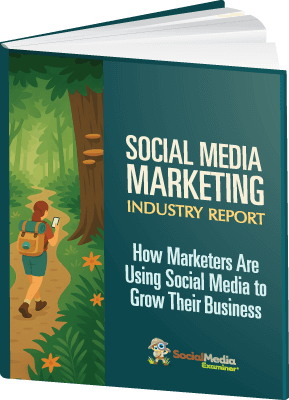Are you struggling to understand how AI search works? Wondering how to position your business to get recommended by AI models like ChatGPT, Claude, and Perplexity?
In this article, you'll discover how to leverage AI search optimization to increase your brand visibility and attract highly qualified leads through AI recommendations.
Why Marketers Need to Optimize for AI Search Engines
While people say that search optimization is dead, that's not really true. AI search, or what some call AI SEO, shares a lot of overlap with traditional search engines like Google. The fundamental difference lies in how people interact with AI tools versus how they interact with Google search, and the need for a more holistic approach to building authority across the web.
Dr. Samantha North, an AI strategist who helps service businesses deploy AI automation, has found that leads that come to websites from AI sources tend to have much higher conversion rates and demonstrate significantly more engagement with content. This enhanced performance occurs because people get a lot of their education on a topic from AI before they ever reach your website. They typically know much more about your brand and are much further along in the journey toward conversion.
AI search optimization also provides the opportunity to further control your brand narrative and reputation. If there's negative sentiment out there about your business, you need to know about it and take action.
#1: How to Learn What AI Search Knows About You or Your Brand
Before implementing any optimization strategies, you need to understand what AI models currently know about your brand. The first step involves getting your hands dirty and asking various AI models direct questions about yourself or your business.
Start by asking several different models what they know about your brand and see what they come back with to see if it's in line with what you want people to know about you.
Begin with basic questions. Ask what the AI knows about your brand, what your key products are, how you compare to main competitors, and who those competitors are. You should also ask the AI who your target audience is.
Describe what you know about the brand [Brand Name], including its products, target audience, core values, and unique market position.
You can then ask about different nuances of your products or services.
One particularly revealing technique involves asking why a specific brand wasn't included in the AI's response. When you ask the AI why it didn't include a particular brand, the AI might tell you that brand is a good contender, but it chose other brands based on certain factors, and it will explain those factors to you. This feedback proves valuable for understanding positioning gaps.
#2: How to Monitor AI Search for Mentions of You or Your Brand
Rather than manually searching for mentions of you or your brand across various AI models, investing in a search monitoring tool can save significant time and provide deeper insights.
Three tools to test are Peec, Trakkr, and Mentions. Among the available options, Mentions offers an intuitive interface that makes sense for most users, though all three tools provide value.
These tools do much more than save manual effort. They track your mention rate across different prompts. So, if you test fifty prompts and only show up in five of them, you can optimize or create content to improve the likelihood you show up on those searches.
The tools also let you dive into different pages from your website and different sources that are surfacing answers about you or your brand, providing detailed analytics about which URLs are feeding AI responses and helping you to identify patterns in how AI models are accessing your content.
Ready to Supercharge Your Marketing Strategy?
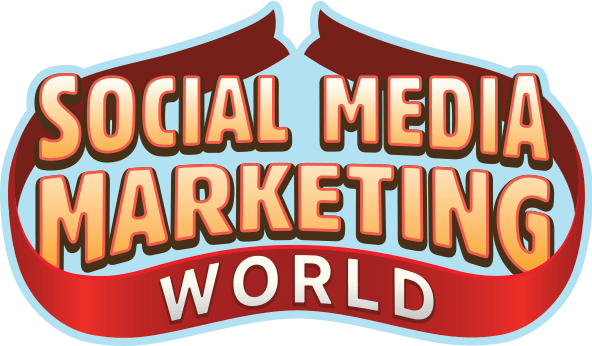
Get expert training and an unbeatable conference experience when you attend Social Media Marketing World—from your friends at Social Media Examiner.
Broaden your reach, skyrocket your engagement, and grow your sales. Become the marketing hero your company or clients need!
🔥 Save $850 on an All-Access ticket. Sale Ends Tuesday! 🔥
GET THE DETAILSFinally, these tools track which models are suggesting you for which prompts and queries. While ChatGPT represents the biggest referrer for brands, Perplexity often holds the second position in terms of traffic generation. Interestingly, Gemini doesn't show up as frequently in analytics, possibly because Gemini and some other models don't send referrer data, so you can't always identify that they're sending traffic to your website.
Pro Tip: Google's AI overviews also deserve consideration as a referral source, though they sometimes contain glaring inaccuracies. While you might proceed with caution when consuming AI overview content, other consumers may treat it as their answer source. You should test your brand's appearance in AI overviews by asking the same questions that you pose to other AI models.
How AI Search Monitoring Tools Work
Traditional SEO tools like SEMrush and Ahrefs have always had accuracy limitations. This remains an issue with AI search monitoring and none of these AI monitoring tools will return entirely accurate results.
This limitation raises important considerations for testing results from these tools.
First, these monitoring tools typically don't access all available AI model variations. For example, Mentions was observed analyzing only Claude Haiku 3.5, which is actually a model rarely used in regular Claude interactions. For ChatGPT, most tools use the common 4o model rather than specialized versions.
Second, the majority of people are using free versions of AI tools. However, power users search across various paid models, and monitoring tools don't fully account for this difference.
Finally, the memory feature in ChatGPT and Claude adds another layer of complexity. Search monitoring tools can't tap into the personal memory that an individual ChatGPT account maintains.
For the most unbiased testing, you'd want to use incognito windows with free models to see what an unbiased version of AI would likely present to someone using a free model.
#3: How to Optimize Your Existing Website Content for AI Search
If your brand already has content showing up in Google search, audit that content and look for your top-performing pieces. See if any of those are also performing in AI search, then optimize them from an AI search standpoint.
AI Is No Longer Optional for Marketers—Ready to Master It?

Join over a thousand forward-thinking marketers at AI Business World—a conference-in-a-conference at Social Media Marketing World.
Get two days of practical AI training where you'll discover:
✅ Systems that 3x your output—leaving time for strategy and creativity
✅ Proven strategies you can deploy right away—no guesswork, no wasted budget
Become the indispensable AI expert your company needs.
GET YOUR TICKETS—SAVE $350The optimization process involves several specific changes to existing content.
First, make sure the article uses simple language. Eliminate jargon, complicated sentence patterns, and all unnecessarily complex elements that might confuse AI models or readers.
Next, change basic headings into question-based formats that mimic how people would interact with an AI tool. Instead of a heading like “Our Services,” change it to “What services does [Your Brand] offer?”
Add a summary box at the top of each article to give AI models something easy to source from. This summary box functions like a TLDR (too long, didn't read) section. It should contain what you think are the most important points of the article and what you want AI to pick up the article for.
You can use Claude or ChatGPT to help create these summaries by putting the article into the AI tool and asking it to give you the five most important points for a summary box.
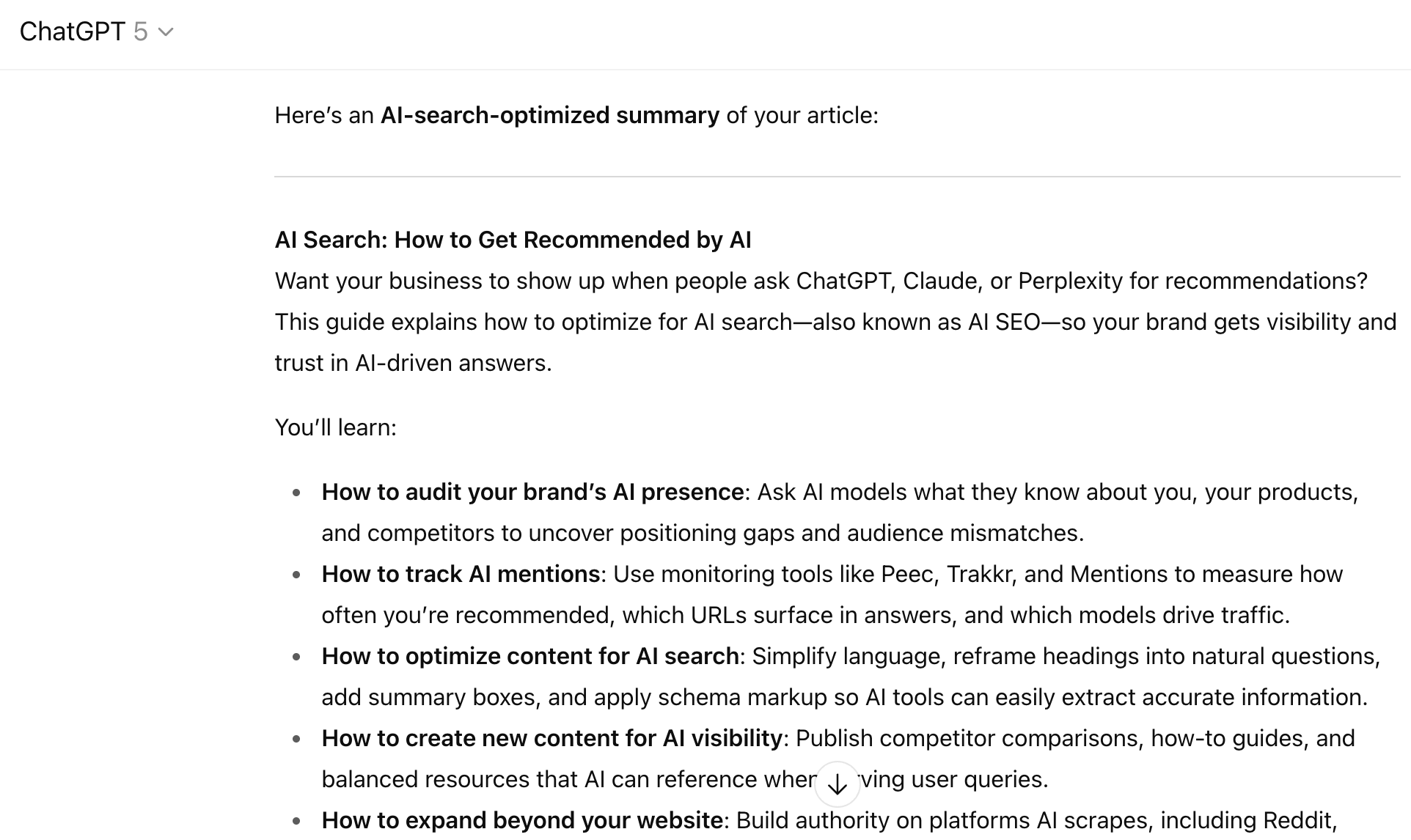
Finally, schema markup has always been somewhat important in traditional SEO, but for AI search optimization, it's becoming increasingly important to give AI models clarity about what each of your pages contains. For example, if you have a how-to post, you could use the how-to schema to tell AI models exactly what type of content they're analyzing.
You don't need to become an expert in schema markup; ChatGPT can help construct these markup elements for you.
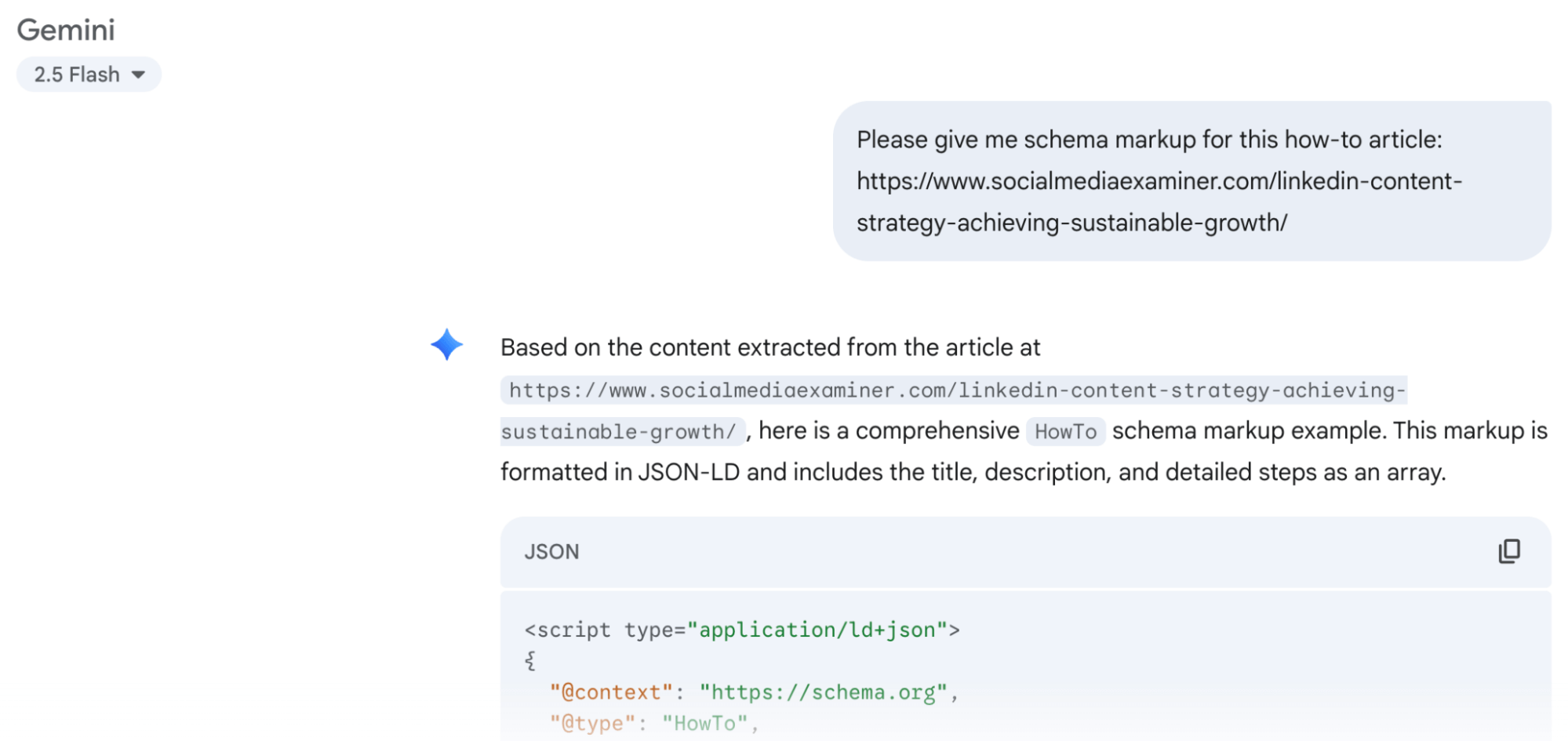
#4: How to Create New Website Content to Surface in AI Search
Creating new content specifically designed for AI search can significantly improve your recommendation rates by developing content that addresses queries people make during the customer journey.
For example, you can create content that compares your brand to competitors, with an eye to ranking for that search.
You could write “Competitors to [your software company]” and choose which competitors to highlight in your comparison. However, this approach requires careful execution with factual, objective content because AI models are trained to serve balanced content for user queries.
When writing these comparison articles, focus on providing comprehensive value without padding the content with unnecessary elements:
- Acknowledge all solutions’ strengths and limitations honestly.
- Communicate that your solution works well for specific use cases and ideal customer profiles.
- Acknowledge where a competitor is stronger in a particular area or better suited for a different use case.
#5: How to Expand AI Search Visibility Beyond Your Website
Success in AI search requires requires more than just optimizing your own website content.
OpenAI has formed a significant partnership with Reddit, and the platform is becoming increasingly significant for search. Reddit's stringent policies against promotional content make it particularly valuable for surfacing your brand in AI models. But marketers must exercise care on the platform.
Like Reddit, Quora values authentic, helpful responses over promotional content.
Getting mentioned in the press provides another source for AI authority building. Sign up for services like Source of Sources and Help a Reporter Out. These services send emails several times daily with opportunities to pitch journalists. If you can get journalists to cover you and mention your brand or name in an article, that content becomes additional fodder for large language models and reinforces your authority.
Posting on LinkedIn is particularly valuable for AI search optimization since it's currently one of the few major platforms that allows all AI models to access its content for information gathering; YouTube, X, and Meta platforms are locked down by by their respective owners for their own use.
However, there's still value in building presence on locked-down platforms for indirect benefits. Even if platforms aren't being scraped directly, building brand awareness across multiple platforms creates familiarity. When someone sees your brand recommended by an AI tool, they're more likely to trust it if they've seen it across other platforms.
Some people who encounter your brand on these platforms will end up writing about these topics on their blogs or discussing them in podcasts, and that content does get scraped by AI models.
Dr. Samantha North is an AI strategist who helps service businesses deploy AI automation so they can attract quality leads without manual processes. She has a PhD in data science and an extensive background in search engine optimization. Explore her personal website and follow her on LinkedIn.
Other Notes From This Episode
- Connect with Michael Stelzner @Stelzner on Facebook and @Mike_Stelzner on X.
- Watch this interview and other exclusive content from Social Media Examiner on YouTube.
Listen to the Podcast Now
This article is sourced from the AI Explored podcast. Listen or subscribe below.
Where to subscribe: Apple Podcasts | Spotify | YouTube Music | YouTube | Amazon Music | RSS
✋🏽 If you enjoyed this episode of the AI Explored podcast, please head over to Apple Podcasts, leave a rating, write a review, and subscribe.
Stay Up-to-Date: Get New Marketing Articles Delivered to You!
Don't miss out on upcoming social media marketing insights and strategies! Sign up to receive notifications when we publish new articles on Social Media Examiner. Our expertly crafted content will help you stay ahead of the curve and drive results for your business. Click the link below to sign up now and receive our annual report!
AI Is Transforming Marketing—Are You Keeping Up?
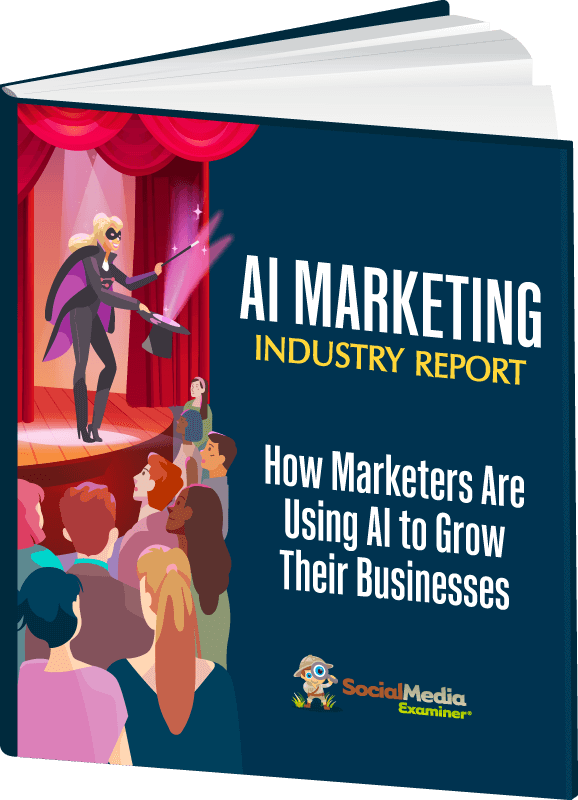
Marketers are rapidly adopting AI to transform their work. Our new 2025 AI Marketing Industry Report surveyed over 730 marketers to reveal the tools, tactics, and trends shaping the industry, including
🔥 90% of marketers save time with AI—discover the top use cases
🔥 The 5 biggest challenges marketers face with AI and how to overcome them
GET THE AI MARKETING INDUSTRY REPORT
